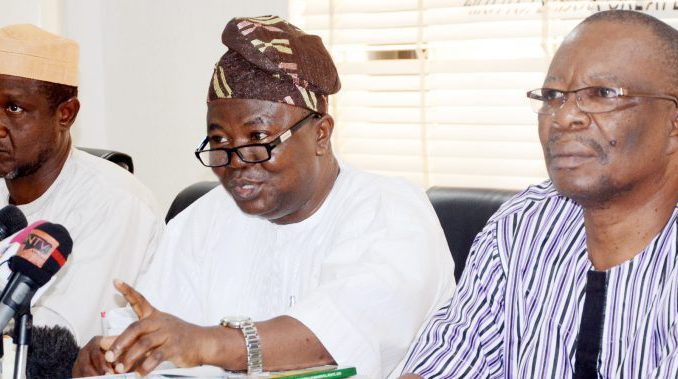
The federal government on January 9, 2019 announced the approval of four new private universities – Greenfield University, Kaduna; Dominion University, Oyo state; Trinity University, Ogun state and Westland University, Iwo, Osun state. This brings the total number of universities in the country to 169, made up of 79 private universities, 47 state-owned universities and 43 federal universities. Since 1999, when the first three private universities – Babcock University, Igbinedion University and Madonna University – were licensed, the number of private universities has had an exponential leap. Opening university education to private sector participation is a laudable policy to create more opportunities for admission seekers who can afford the fees. However, more universities – public or private – does not address the fundamental problems of inadequate funding of and poor quality control in universities.
Studies have shown that when universities are inadequately funded in any country, the institutions’ foundation is financially weak and the students’ educational foundation is intellectually weak. This is the problem Nigerian universities have had to contend with over the years. Although UNESCO recommended that developing countries need to allocate at least 26 percent of the national budget to education, as a development strategy to leapfrog their economic growth, Nigeria has never attained even 17 percent budgetary allocation to education. In the past two decades, the highest allocation to education was the 10.79 percent in the 2015 budget. It is depressing that in the three years of the Muhammadu Buhari presidency, allocation to education has suffered continuous decline, in percentage terms – 7.92 % in 2016, 7.40% in 2017 and 7.04 % in 2018 – indicating the administration’s limited interest in the education sector. Declining allocations to education in a period of high increases in students’ enrollment is indicative of gross neglect of education.
Dilapidated and obsolete infrastructure symbolise the major decay in the university system. In spite of this reality, budgetary allocations have been notoriously skewed in favour of recurrent expenditure with peanuts earmarked for capital projects. For instance in the N605.8 billion federal budgetary allocation to education in the 2018 budget, N435.1 billion was for recurrent expenditure, N109.06 billion for the Universal Basic Education Commission while a paltry N61.7 billion was for capital expenditure. Funding of state owned universities has not fared better than that of the federal government, and often worse, with some state governments owing the staff of their universities. We are, therefore, of the view that it is irresponsible for federal and state governments to continue establishing new universities when they cannot adequately finance the ones they already owned. The on-going strike by the Academic Staff Union of Universities, primarily to protest the rot in infrastructure in government-owned universities, is proof of the unconscionable disregard for quality university education by federal and state governments. Licensing more private universities cannot absolve the two levels of government their responsibility of providing affordable university education to the people and also setting infrastructural standard for private universities, many of whose proprietors are similarly deficit in funding their institutions, with backlog of salaries to staff.
More private universities also have serious implication for quality of graduates. Like many government-owned institutions, their carrying capacities are limited while academic staffing is poorer than public-owned universities. The National Universities Commission (NUC) in its efforts to ensure high academic standard established the Benchmark for Minimum Academic Standard (BMAS) which stipulates minimum facility provision for specific courses, academic staff requirement and Lecturer-Student ratio. Unfortunately, the NUC has been unable to enforce compliance with academic mix of 20 percent professors, 35 percent senior lecturers and 45 percent lecturers 1 and below, and that of Lecturer-Student ratio of between 1: 15 for medicine and 1 : 30 for arts, social sciences, with adverse effects on quality of graduates. Many departments in universities do not have professors or even senior lecturers, yet the NUC visitation and accreditation panels recommend approvals of such programmes. Many universities, especially private ones, hire lecturers from other institutions, which they present as their own staff or as associates. It is a racket, with many NUC panels compromised. Requirements by NUC that equipment presented during accreditation must be branded are a right step but the Commission must devise a means to cross-check recommendations for programmes’ approval to stop profiteering by panel members.
Another problem area with regard to quality control is the general poor quality of students being enrolled in universities, which call to question the grades many attain in the secondary school examinations conducted by WAEC and NECO. With the Joint Admissions and Matriculation Board (JAMB) lowering admission cut-off mark to 120 for universities, ensuring high quality is going to be more difficult.
The current sorry state of the university system in Nigeria demands that the federal government must take a holistic approach in tackling the endemic rot, by ensuring higher quality of university admission seekers, better funding across board to expand carrying capacity of existing universities and a quality control mechanism that is above board. Licensing more universities- public or private- is ill-advised and must stop, for now. It is not the solution to a near comatose university education system in the country.
The federal government seem to be swayed by the numbers game being played by in approving more universities rather expand facilities in existing ones to accommodate more students at less cost.
END

Be the first to comment